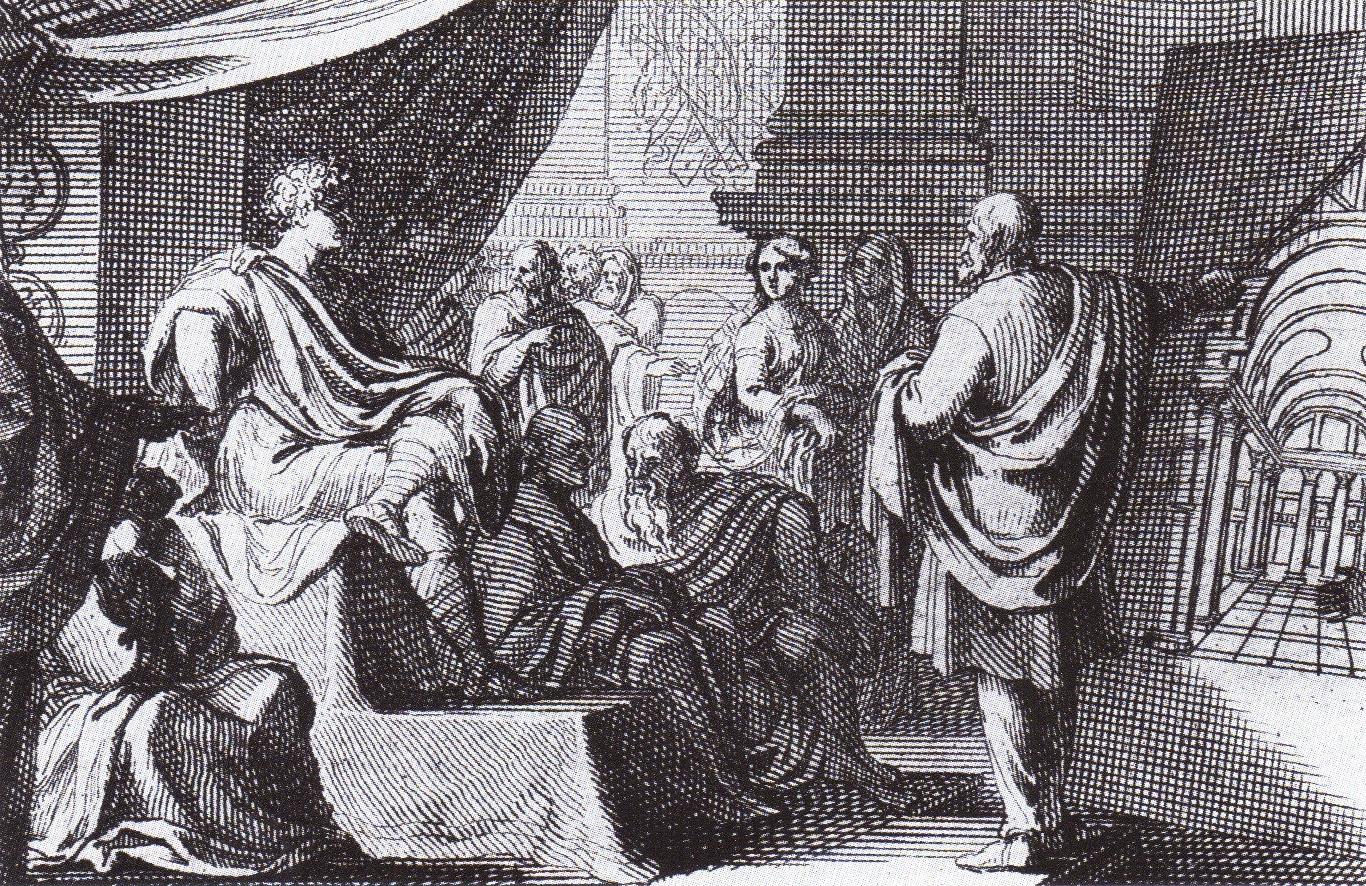Vitrúvio Frases famosas
La scienza dell'architetto si adorna di molte discipline e di svariata erudizione: egli deve essere in grado di giudicare tutte quelle opere che le singole arti costruiscono.
Vitruvio como citado in Architterura civile - Página 5, Guarino Guarini - Edizione il Polifilo, 1968 - 471 páginas
Vitrúvio: Frases em inglês
Fonte: De architectura (The Ten Books On Architecture) (~ 15BC), Book II, Chapter VIII, Sec. 8
Fonte: De architectura (The Ten Books On Architecture) (~ 15BC), Book X, Chapter XVI, Sec. 12
Introduction, Sec. 2
De architectura (The Ten Books On Architecture) (~ 15BC), Book II
Fonte: De architectura (The Ten Books On Architecture) (~ 15BC), Book II, Chapter VI, Sec. 2-3
“Architecture depends on Order, Arrangement, Eurythmy, Symmetry, Propriety, and Economy.”
Fonte: De architectura (The Ten Books On Architecture) (~ 15BC), Book I, Chapter II "The Fundamental Principles of Architecture" Sec. 1
Fonte: De architectura (The Ten Books On Architecture) (~ 15BC), Book II, Chapter IV, Sec. 3
Fonte: De architectura (The Ten Books On Architecture) (~ 15BC), Book II, Chapter II, Sec. 2
Fonte: De architectura (The Ten Books On Architecture) (~ 15BC), Book I, Chapter III "The Departments of Architecture" Sec. 1
Introduction, Sec. 17
De architectura (The Ten Books On Architecture) (~ 15BC), Book IX
Fonte: De architectura (The Ten Books On Architecture) (~ 15BC), Book II, Chapter III, Sec. 4
Fonte: De architectura (The Ten Books On Architecture) (~ 15BC), Book I, Chapter VI, Sec. 11
Fonte: De architectura (The Ten Books On Architecture) (~ 15BC), Book I, Chapter I, Sec. 2
Fonte: De architectura (The Ten Books On Architecture) (~ 15BC), Book II, Chapter VI "Pozzolana" Sec. 1
Fonte: De architectura (The Ten Books On Architecture) (~ 15BC), Book I, Chapter IV "The Site of a City" Sec. 1
“In fact, all kinds of men, and not merely architects, can recognize a good piece of work…”
Fonte: De architectura (The Ten Books On Architecture) (~ 15BC), Book VI, Chapter VIII, Sec. 10
Fonte: De architectura (The Ten Books On Architecture) (~ 15BC), Book I, Chapter I "The Education of the Architect" Sec. 1
Introduction, Sec. 1
De architectura (The Ten Books On Architecture) (~ 15BC), Book VI
Fonte: De architectura (The Ten Books On Architecture) (~ 15BC), Book X, Chapter I, Sec. 3
Fonte: De architectura (The Ten Books On Architecture) (~ 15BC), Book VII, Chapter V, Sec. 4
Fonte: De architectura (The Ten Books On Architecture) (~ 15BC), Book I, Chapter VI, Sec. 10
Fonte: De architectura (The Ten Books On Architecture) (~ 15BC), Book III, Chapter I, Sec. 1
Fonte: De architectura (The Ten Books On Architecture) (~ 15BC), Book II, Chapter III, Sec. 4
Fonte: De architectura (The Ten Books On Architecture) (~ 15BC), Book VIII, Chapter VI, Sec. 11
Fonte: De architectura (The Ten Books On Architecture) (~ 15BC), Book I, Chapter V, Sec. 2
Fonte: De architectura (The Ten Books On Architecture) (~ 15BC), Book II, Chapter IX, Sec. 11
Fonte: De architectura (The Ten Books On Architecture) (~ 15BC), Book I, Chapter I, Sec. 7
Fonte: De architectura (The Ten Books On Architecture) (~ 15BC), Book IV, Chapter VIII, Sec. 6
Fonte: De architectura (The Ten Books On Architecture) (~ 15BC), Book II, Chapter VIII "Methods of Building Walls" Sec. 1
Fonte: De architectura (The Ten Books On Architecture) (~ 15BC), Book I, Chapter IV, Sec. 12
“Cold winds are disagreeable, hot winds enervating, moist winds unhealthy.”
Fonte: De architectura (The Ten Books On Architecture) (~ 15BC), Book I, Chapter VI "The Directions of the Streets with Remarks on the Winds" Sec. 1
